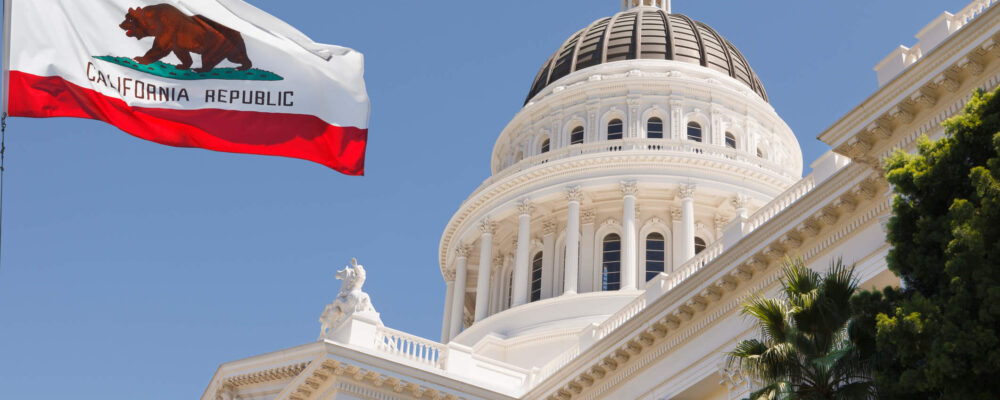Quick Hits
- DHS’s new final rule expands DHS’s authority to conduct site visits and impose penalties on employers that fail to follow the requirements of the program.
- The final rule expands H-2 worker flexibility and portability, includes expanded grace periods at the beginning and end of the H-2 petition validity period, and establishes the ability of an eligible H-2 nonimmigrant worker to begin working for a new employer upon the filing of a nonfrivolous H-2A or H-2B petition requesting an extension or amendment of stay if the H-2 worker is already in the United States in H-2 status.
- The rule also updates the rules regarding the length of time an H-2 worker must spend outside the United States to be eligible for a new three-year term and eliminates the prior calculation of “interrupted stay.”
The final rule, “Modernizing H-2 Program Requirements, Oversight, and Worker Protections,” will take effect on January 17, 2025, thirty days after its publication in the Federal Register.
DHS stated that the purpose of the rule was to modernize and improve H-2 programs and significantly strengthen worker protections by, among other things, imposing new consequences for companies that charge prohibited fees or violate labor laws, and provide greater flexibility for H-2A and H-2B workers.
Program Integrity and Worker Protections
USCIS Compliance Reviews and Inspections
The final rule codifies USCIS’s authority to conduct inspections and compliance reviews in the context of H-2 programs. These provisions clarify the scope of USCIS’s authority and outline the consequences for an employer’s or petitioner’s failure or refusal to fully comply with a compliance review or inspection, including revocation of approved petitions, denial of new petitions, and prohibitions on participation in the H-2 program. The final rule outlines the forms that such inspections can take, including site visits, phone interviews, and electronic or mail communications.
Employer Requirements and Protections for Workers
Under the H-2 program, certain fees must be paid by the petitioner and may not be charged to the H-2 worker. These fees may not be paid by a worker in any form, including by withholding or deducting the worker’s wages; requiring the worker to directly or indirectly pay a recruiter, agent, employer, or anyone else in the recruitment chain; or requiring the worker to pay any other expenses or fees that the employer is required to cover under the statutes and regulations. Petitioners may be reimbursed by H-2 workers for fees that are truly voluntary and personal, such as passport fees.
If an employer is charged with violating the fee restrictions, the H-2 petition will be denied or revoked unless the employer can provide clear and convincing evidence that the employer’s actions were in good faith, immediate action was taken to correct the mistake once discovered, and that all impacted employees were reimbursed.
H-2B employers have an additional requirement to show that extraordinary circumstances beyond the company’s control resulted in its failure to prevent the collection of prohibited fees.
Under the final rule, DHS authorizes, and, in some circumstances, mandates, USCIS adjudicators to deny H-2A or H-2B petitions when an employer is found to have violated certain labor law violations or abused the H-2 programs. This provision is intended to target petitioners who have committed serious violations or have otherwise been noncompliant with program requirements. The final rule enumerates specific reasons that USCIS will deny a petition, including a final administrative determination by the secretary of labor debarring the petitioner from filing or receiving a future labor certification or a final USCIS denial or revocation decision for a previous H-2 petition that includes a finding of fraud or willful misrepresentation of a material fact if the petition was filed under certain circumstances.
Whistleblower Protections
The final rule implements whistleblower protections for H-2 workers that are similar to the whistleblower protections afforded H-1B workers. Under this provision, USCIS is authorized to find that an H-2 worker has lost or failed to maintain status due to “extraordinary circumstances” if the worker submits credible documentary evidence of retaliatory action taken in response to the worker’s engagement in protected activity or the worker’s reasonable claim of a violation or potential violation of an applicable program requirement with an extension of status petition or a change of status petition.
DHS authorizes such a finding if credible documentary evidence of retaliation is submitted to support a petition for an extension of H-2 status or a change of status to a different nonimmigrant classification. The final rule states that USCIS will consider the reasonableness of a claim from the perspective of “a reasonable person in the H-2A or H-2B worker’s position.”
Worker Flexibility
Grace Period Extensions
H-2 workers will now be eligible for an entry grace period of up to ten days before their periods of authorized employment begin. This change provides a uniform pre-employment grace period for all H-2 workers.
The final rule also increases the grace period at the end of employment for H-2 workers. Under the new rule, H-2 workers have a post-validity grace period of up to thirty days, which means that these workers are eligible to remain in the United States for thirty days, even after the expiration of their work authorization. Additionally, DHS is providing a grace period of up to sixty days after cessation of employment or until the end of the employee’s authorized stay, whichever is shorter, if the employee’s employment ends or the employer’s petition is revoked before the final validity date.
During these grace periods, the worker will be considered to have maintained nonimmigrant status and will not accrue unlawful presence solely on this basis. The worker will be permitted to apply for and be granted an extension of status or change of status during this period, so long as the worker is otherwise eligible. Both grace-period provisions apply to H-2 dependents in H-4 status.
Return Transportation
The final rule clarifies that H-2A employers, like H-2B employers, must provide the reasonable costs of return transportation for an H-2A worker to the worker’s last place of foreign residence. H-2 employers are exempt from this requirement if the worker obtains an approved extension of stay petition in the same classification filed by a different employer.
Permanent Adoption of Portability Provisions
Under the portability provision, upon the proper filing of an amended petition or a petition for an extension of stay, an H-2 worker may begin new employment in the same classification that the worker currently holds with a new employer or with the same employer. While the petition is pending, the beneficiary is considered to have been in a period of authorized stay and the petitioner is bound by all H-2 program requirements. The portability benefits apply even if the porting petition is subsequently withdrawn or denied.
Under the final rule, DHS removes the requirement that H-2A workers may port only to E-Verify employers, extending portability to H-2A workers who are lawfully present regardless of whether the porting petitioner participates in E-Verify.
Lawful Permanent Residence for H-2 Workers
The final rule clarifies that H-2 workers can take certain steps toward becoming lawful permanent residents without impacting their ability to maintain H-2 status. These steps include the approval of a permanent labor certification, the filing of an immediate relative or preference petition by or for the worker, the filing of a diversity visa petition, or the filing of an immigrant visa or an adjustment of status application to seek lawful permanent residence.
DHS stated that an H-2 petition filed for admission, change of status, or an extension or amendment of stay will not be denied on the sole basis that the worker has taken steps toward becoming a lawful permanent resident. When determining whether an H-2 nonimmigrant is maintaining H-2 status, the USCIS adjudicator will consider whether the worker has taken such steps together with all other facts presented.
H-2 Program Efficiency Improvements
Elimination of Eligible Countries List
DHS is expanding H-2 sponsorship to citizens of all countries and eliminating the additional evidentiary requirements previously in place for certain countries. Prior to this rule, H-2 beneficiaries either had to be citizens of a country on a specific enumerated list of eligible countries, or the employer had to provide additional evidence and justification for their hire. In making this change, DHS is opening up H-2 sponsorship to more beneficiaries and easing the employer’s evidentiary burden.
Changes to Period-of-Stay Calculations
DHS is implementing a uniform standard for determining the maximum period of stay in H-2 status. The three-year maximum period of stay remains the same for H-2A and H-2B workers. However, the period of absence, or time spent outside the United States, required to reset a worker’s maximum period of stay in H-2 status is reduced from three months to sixty days. If an H-2 worker is outside the United States for an uninterrupted period of sixty days, the worker’s three-year term “resets” and the worker is eligible for a new full term in H-2 status.
DHS is also eliminating the concept of an “interrupted stay” for the purposes of calculating the three-year term. Previously, time spent outside the United States paused the three-year clock in certain instances. DHS is eliminating these calculations and implementing a straightforward timeline for the H-2 program.
Next Steps
The rule is expected to become effective on January 17, 2025, thirty days after its publication in the Federal Register. In its December 17, 2024, press release, DHS indicated that a new edition of the Form I-129, Petition for a Nonimmigrant Worker, would be required, beginning on the effective date of the rule (January 17, 2025) with no grace period for accepting prior form editions. Like other late-term regulations, this rule may be subject to challenge from the new administration, either under the Administrative Procedure Act (APA) or via congressional review and rescission pursuant to the Congressional Review Act (CRA).
Ogletree Deakins’ Immigration Practice Group will continue to monitor developments and will publish updates on the Immigration blog as additional information becomes available.
Follow and Subscribe
LinkedIn | Instagram | Webinars | Podcasts
“Ogletree Deakins has experienced professionals in all areas of labour and employment law who provide efficient, client-focused service. We represent employers of all industries and sizes, from small businesses to Fortune 50 companies.”
Please visit the firm link to site






